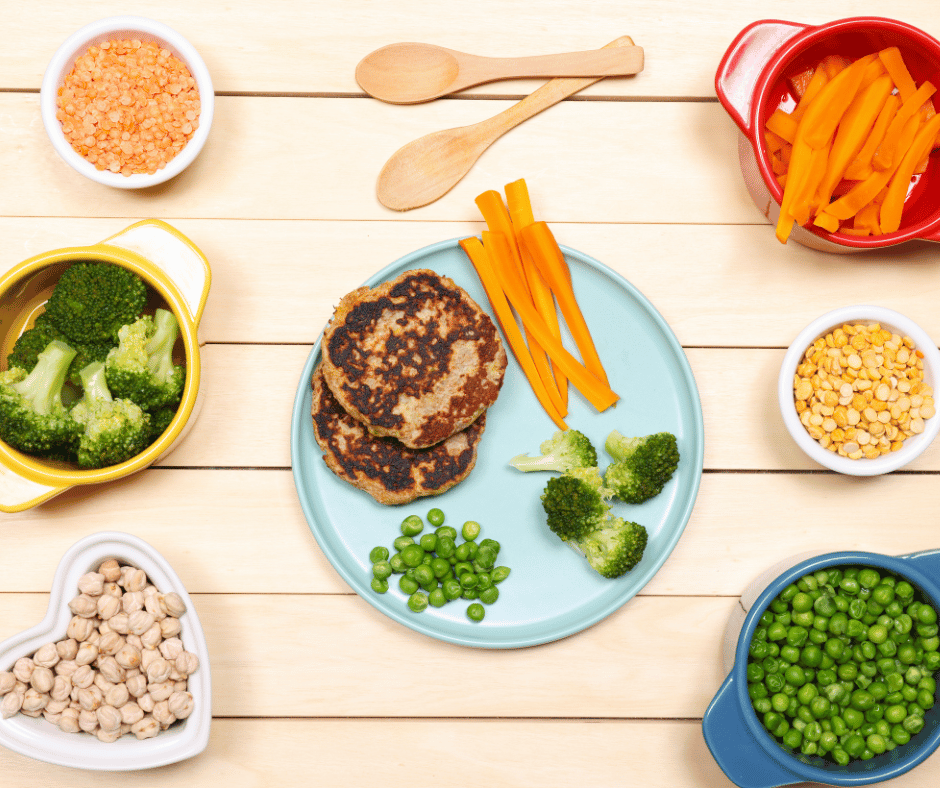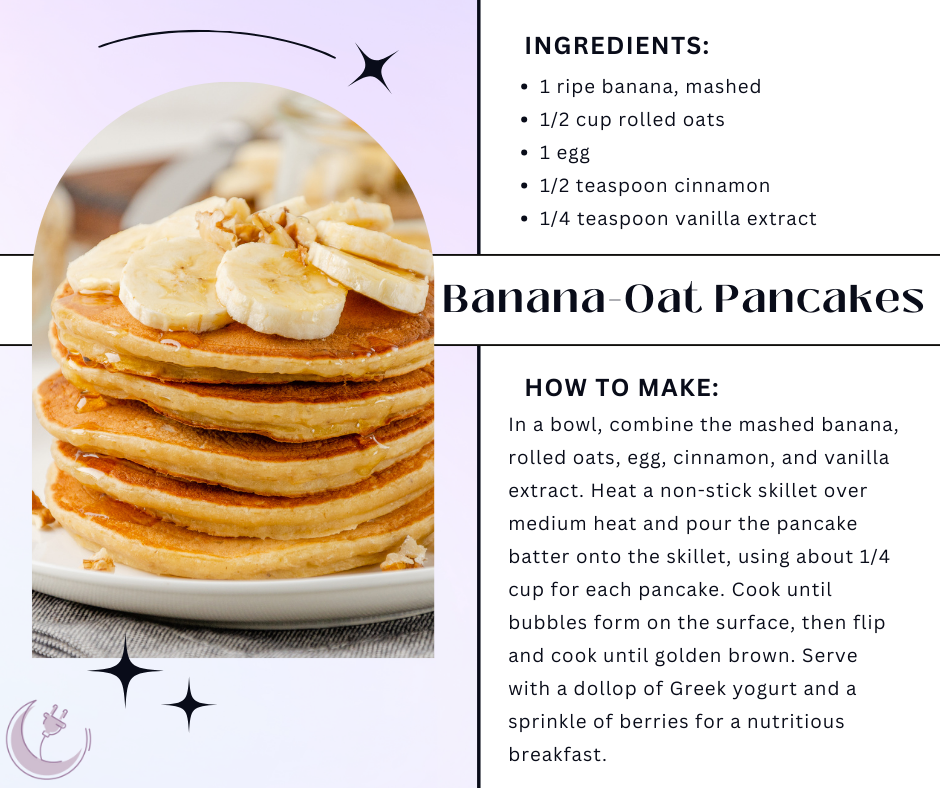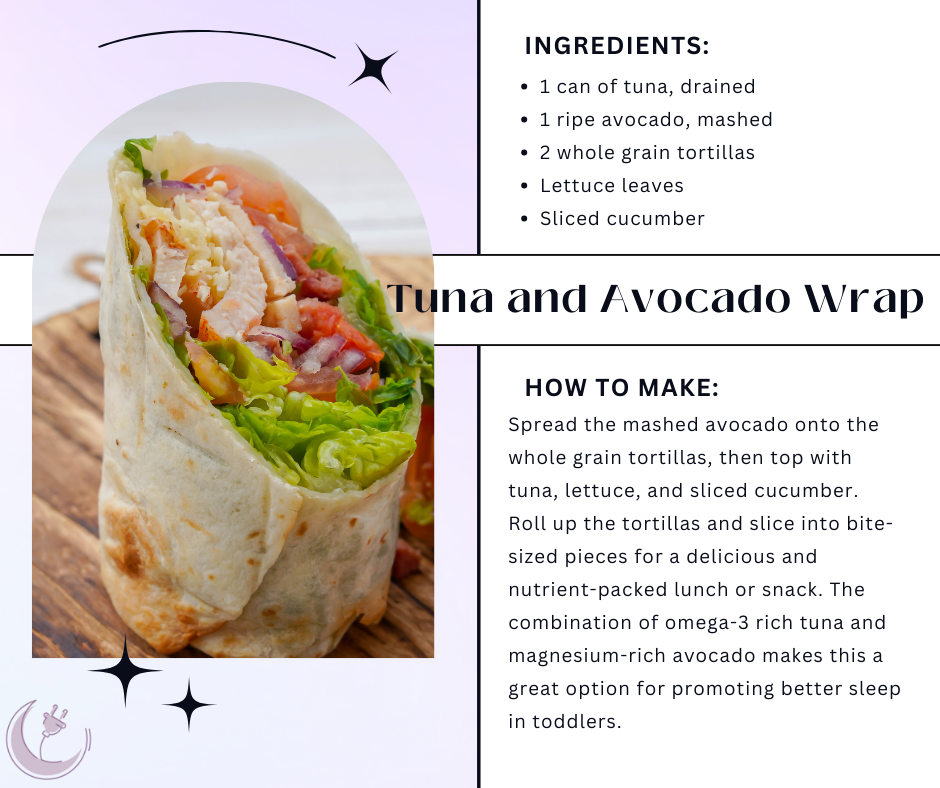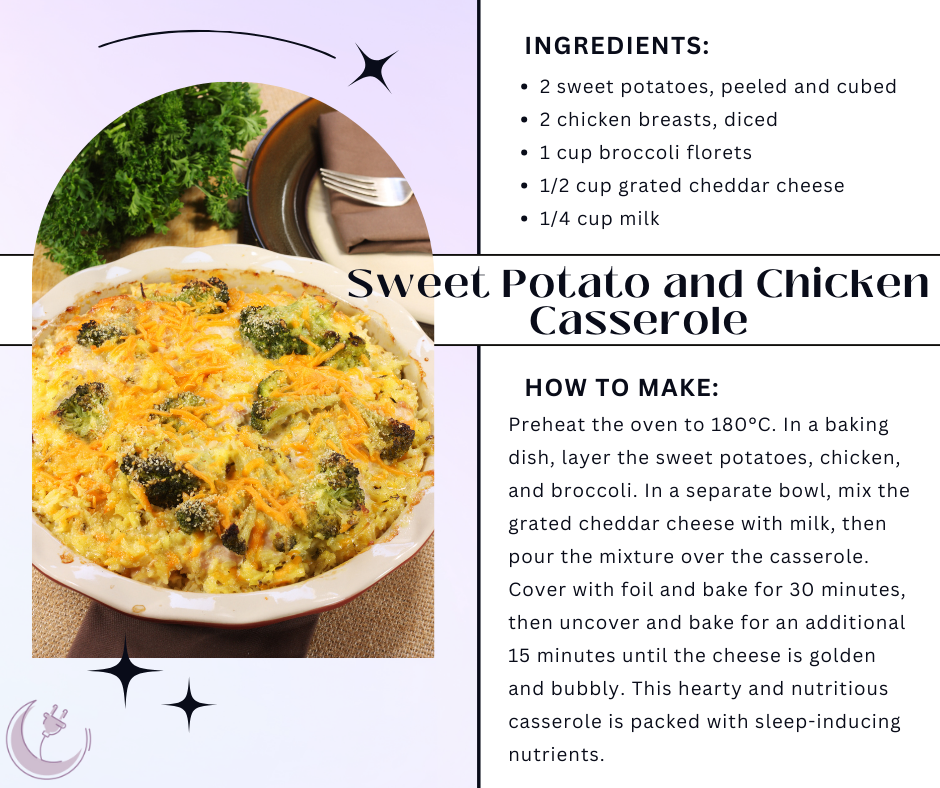Ready to sleep better tonight? Here are my Top 5 Tips for helping your little one sleep better!
The Connection Between Food and Sleep

I’ve always been fascinated by the complex relationship between the food we eat and the quality of our sleep. Understanding how certain nutrients can promote better sleep can be a game-changer in ensuring your toddler gets the restful sleep he needs. When it comes to toddlers, their developing bodies and growing minds require adequate sleep for optimal health and development. It’s essential to recognize the impact of food on their sleep patterns and overall well-being.
One of the key elements to consider is the role of tryptophan, an amino acid that the body uses to produce serotonin and melatonin. Both of these hormones are crucial for sleep. Foods rich in tryptophan can aid in the natural production of these sleep-promoting hormones. Additionally, the presence of certain vitamins and minerals, such as magnesium and B vitamins, can also contribute to better sleep by supporting relaxation and the regulation of the sleep-wake cycle.
Nutrients That Promote Better Sleep
Certain nutrients have been shown to promote better sleep, making them essential components of a toddler’s diet. One such nutrient is magnesium, which plays a key role in regulating sleep. Foods rich in magnesium, such as leafy greens, nuts, and seeds, can help promote relaxation and improve sleep quality. Also, foods high in tryptophan include poultry, dairy products, and nuts, and incorporating these into your toddler’s meals can support healthy sleep patterns.
Additionally, foods rich in calcium, such as dairy products, can help regulate the production of melatonin, the hormone that controls sleep and wake cycles. Vitamin B6 is also important for sleep, as it helps the body produce neurotransmitters that regulate sleep patterns. Foods like:
- Bananas
- Avocados
- Poultry
are excellent sources of vitamin B6 and can be included in your toddler’s diet to support healthy sleep.
Foods to Avoid for a Good Night’s Sleep
While it’s crucial to focus on incorporating sleep-inducing foods into your toddler’s diet, it’s equally important to be mindful of foods that may hinder their ability to get a good night’s sleep.
In particular, food that are high in sugar and caffeine can disrupt sleep patterns and lead to restlessness, making it challenging for toddlers to settle down and have a restful night’s sleep.
Sugary treats and beverages can cause fluctuations in blood sugar levels, leading to energy spikes and crashes that can interfere with the natural sleep cycle. Similarly, caffeine, commonly found in chocolate and some sodas, can act as a stimulant, making it difficult for toddlers to wind down and fall asleep. By limiting the consumption of these items, you can help create a conducive environment for better sleep.
It’s important to be mindful of highly processed and greasy foods, as they can be harder for the body to digest. This can potentially cause discomfort and indigestion that may disrupt sleep. By being conscious of the types of foods you offer your toddler, you can reduce potential disruptions to their sleep.
Incorporating Sleep-Inducing Foods into your Toddler’s Diet
Now that you understand the importance of certain nutrients for promoting better sleep, it’s time to incorporate these sleep-inducing foods into your toddler’s diet. Fortunately, there are plenty of delicious and nutritious options to choose from.
It’s important to consider the timing of meals and snacks for our toddlers. Providing a balanced meal with:
- a mix of protein
- healthy fats
- complex carbohydrates
can help stabilize their blood sugar levels and support better sleep.
Toddler-friendly Recipes for Better Sleep
Creating toddler-friendly recipes that incorporate sleep-inducing foods can be a fun and rewarding way to support their sleep. Here’s some simple and nutritious recipes that are not only packed with sleep-promoting nutrients but are also appealing to young children.



By preparing these simple and wholesome recipes, you can ensure that your toddler receives the essential nutrients they need to support better sleep while enjoying delicious and satisfying meals.
Establishing a Bedtime Routine and Sleep Friendly Environment
In addition to incorporating sleep-inducing foods into your toddler’s diet, establishing a bedtime routine can help signal to your little one that it’s time to wind down and prepare for sleep. Consistency is key when it comes to bedtime routines, so aim to start the routine at the same time each night and follow a sequence of calming activities that help your toddler relax and transition to sleep.
Finally, creating a sleep-friendly environment for your toddler can further support healthy sleep patterns. This includes ensuring that your toddler’s sleeping space is comfortable, quiet, and conducive to sleep. Consider using blackout curtains to block out light, white noise machines to drown out any disruptive sounds, and a comfortable mattress and bedding to create a cozy sleep environment.
Incorporating sleep-inducing foods into your toddler’s diet and creating a sleep-friendly environment are important steps in helping your little one sleep through the night. By understanding the connection between food and sleep, including nutritious ingredients in your toddler’s meals, establishing a bedtime routine, and creating a sleep-friendly environment, you can support healthy sleep patterns for your toddler. With these strategies in place, you can help your little one tuck in and snooze soundly, promoting optimal health and well-being.
If you have made all these changes and are still experiencing sleep related issues, you can get in touch with me. I am a Pediatric Sleep Consultant, helping families reach their sleep goals with gentle methods and proven techniques. Book a Call or Visit my website here.



